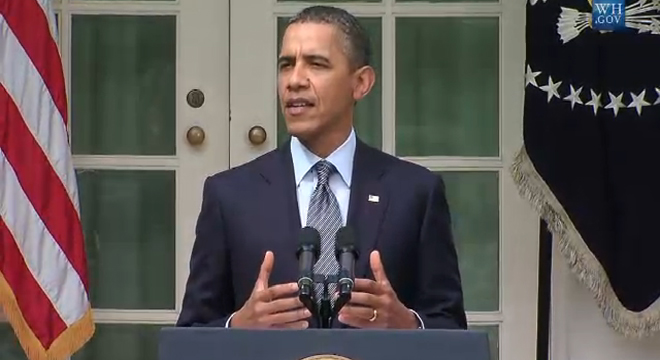Republicans rushed to denounce President Obama’s changes to No Child Left Behind in anticipation of the official unveiling Friday morning, deeming the overhaul just another government power grab by Washington.
In a White House ceremony, Obama and Education Secretary Arne Duncan will announce a new plan to allow states to seek waivers on the NCLB requirement for school proficiency by 2014. But in order to qualify for the exceptions, states must follow education policy changes dictated by the administration.
Under Obama’s new plan, states can request flexibility from specific NCLB mandates, but only if they are transitioning students, teachers, and schools to a system with college- and career-ready standards for all students and developing built-in accountability that reports the lowest performing 5 percent of schools and the 10 percent with the largest achievement gaps, as well as teacher and principal evaluations that include student performance.
“To help states, districts and schools that are ready to move forward with education reform, our administration will provide flexibility from the law in exchange for a real commitment to undertake change,” Obama said Thursday in a release previewing the announcement. “The purpose is not to give states and districts a reprieve from accountability, but rather to unleash energy to improve our schools at the local level.”
House Education and the Workforce Committee Chairman John Kline (R-MN) Thursday deemed Obama’s waiver requirements a typical “political move” that puts too much power over educators across the country into the hands of Washington bureaucrats.
“While I appreciate some of the policies outlined in the secretary’s waivers plan, I simply cannot support a process that grants the secretary of Education sweeping authority to handpick winners and losers,” Kline said. “This sets a dangerous precedent, and every single American should be extremely wary.”
But the idea of the waivers is hardly limited to Democratic circles. Two GOP members of the Senate Health Education Labor and Pensions Committee, Lamar Alexander (R-TN) and Johnny Isakson (R-GA), introduced a bill last week that would jettison proficiency requirements from NCLB, but their bill left it to the states to determine their own set of standards and accountability measures.
At the GOP debate in Orlando, the Republican presidential contenders focused far more broadly, arguing that the entire Department of Education should be considerably downsized if not completely shut down.
Rep. Michele Bachmann (MN) said she would push for the total repeal of NCLB and other federal education laws, and more colorfully, pledged to show up at the department’s headquarters, turn out the lights and lock the door.
Texas Gov. Rick Perry argued that the Education Department is too heavy-handed and zinged former Massachusetts Gov. Mitt Romney for backing the Obama administration’s “Race to the Top” program that rewards states that meet federal standards with additional funds, but Romney denied fully backing the agency or its recent attempts at reforms.
Former Speaker Newt Gingrich harkened back to the GOP talking points of the early 1990s, arguing that the federal government should get out of the way completely and block grant money to the states to allow parents to pay for the schools — public or private — of their choice.
Obama’s education overhaul comes nearly a decade after NCLB became law, and four years after Congress was scheduled to rewrite it. After its inception, the NCLB scrutinized achievement gaps and increased accountability for high-need students, but critics argue that it also encouraged states to lower standards and narrow curriculum, focused on absolute test scores instead of student growth and gains, and created one-size-fits-all federal mandates.
“We want to get out of the way and give states and districts flexibility to develop locally-tailored solutions to their educational challenges while protecting children and holding schools accountable for better preparing young people for college and careers,” Education Secretary Arne Duncan said in a release.
Since NCLB was first instituted, teachers and unions have quietly revolted against its policies, and more recently, states have begun to produce their own changes to the law. Several states have come up with their own innovations, including widespread adoption of college- and career-ready standards, development of new assessments, and other reforms in areas including teacher and principal evaluation and support, and turning around low-performing schools.






